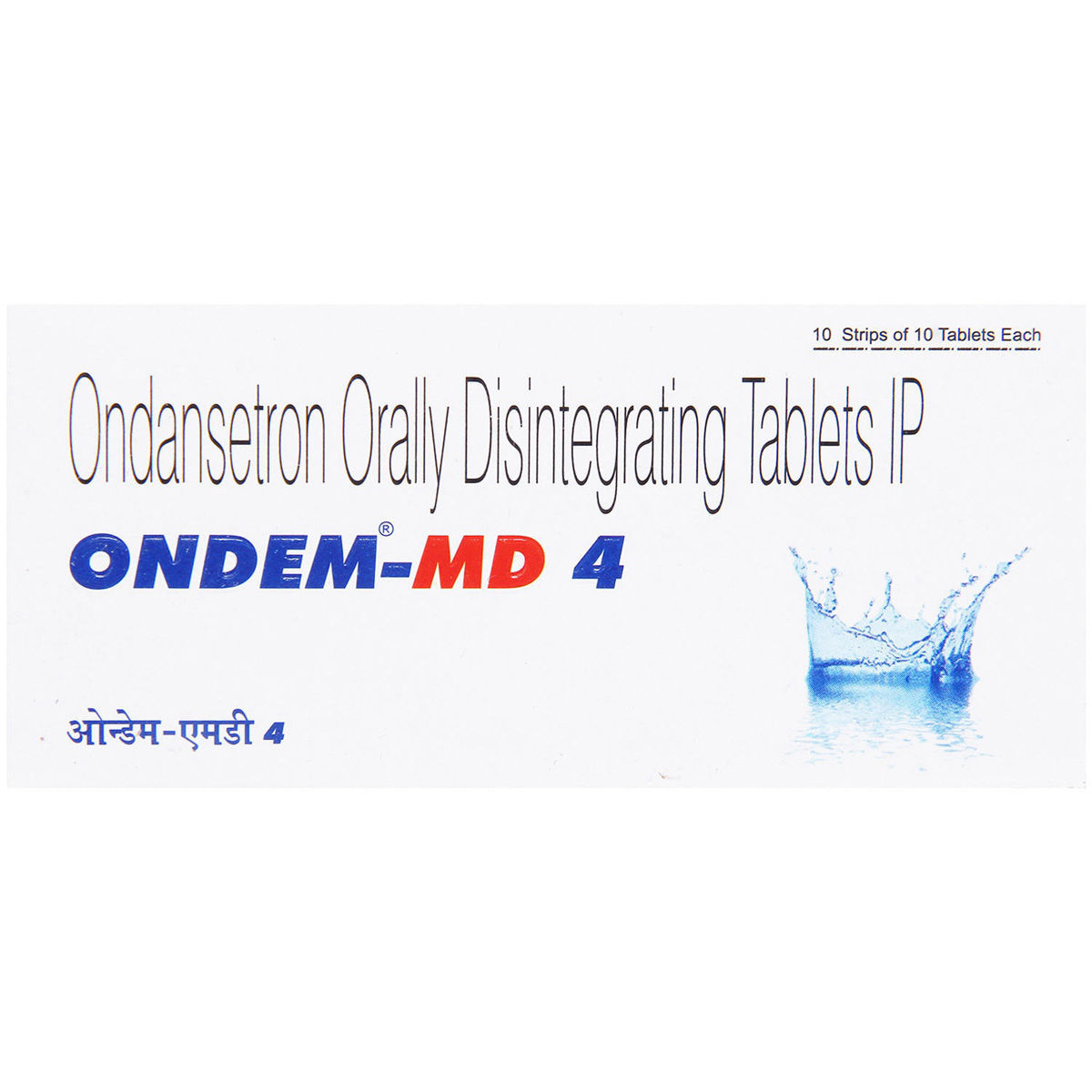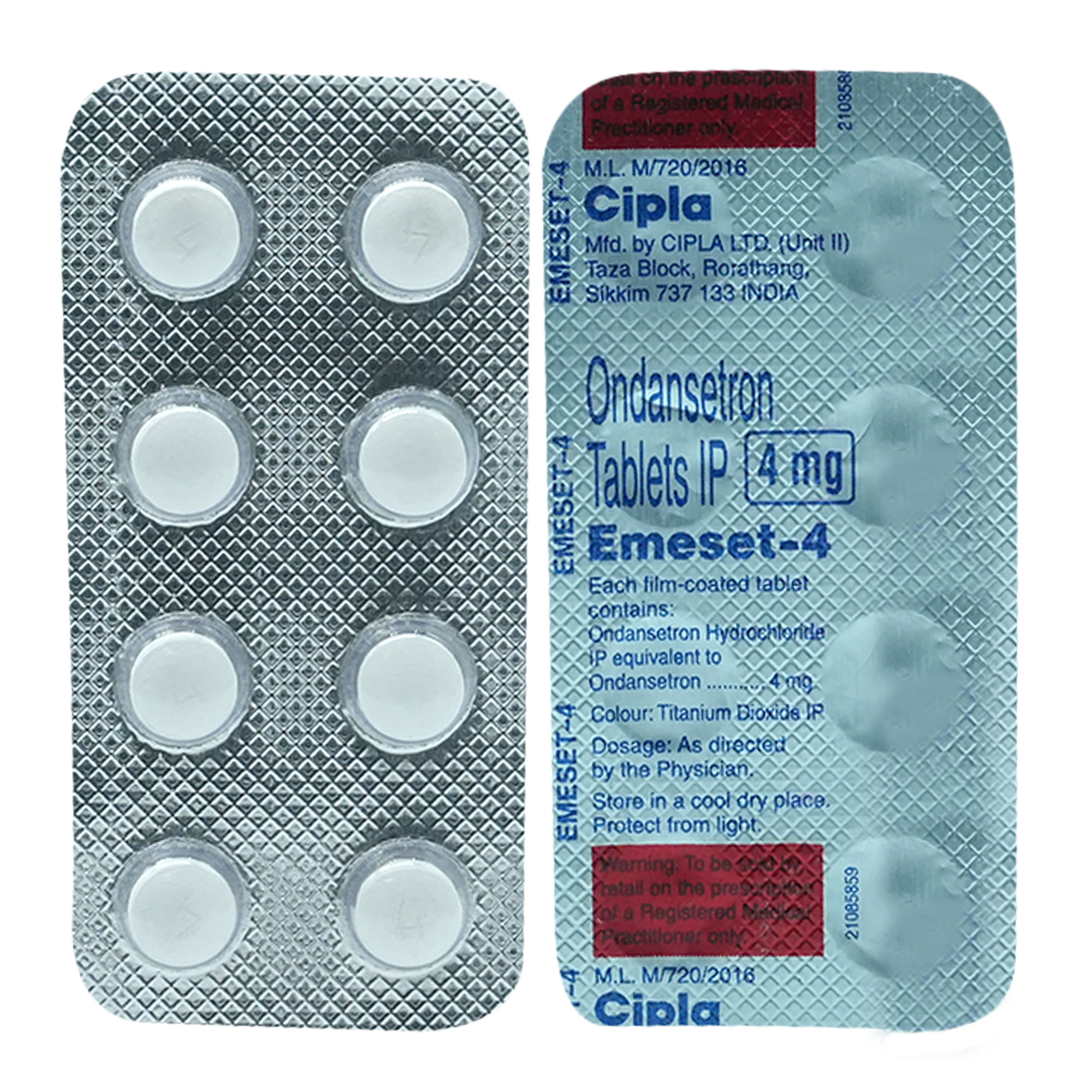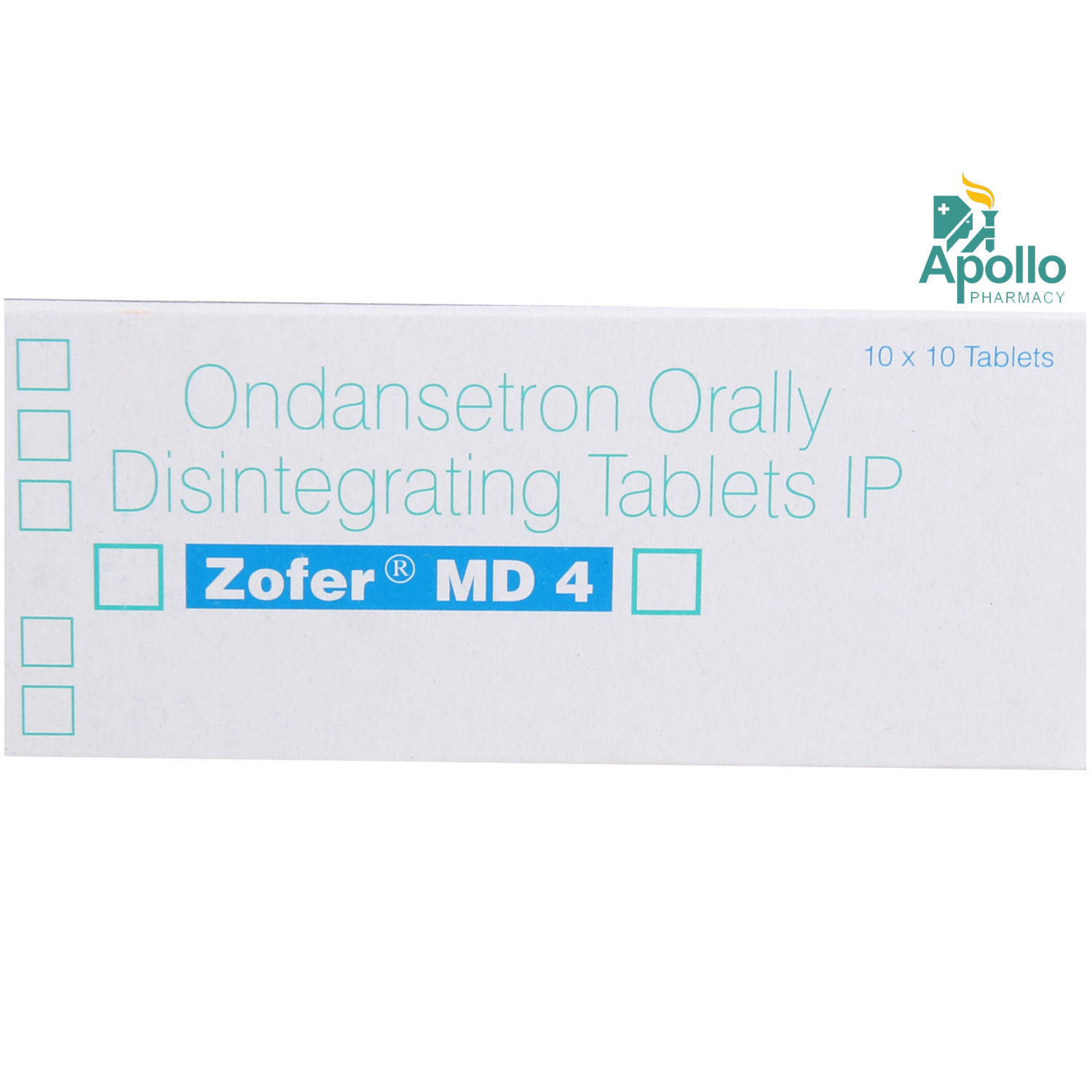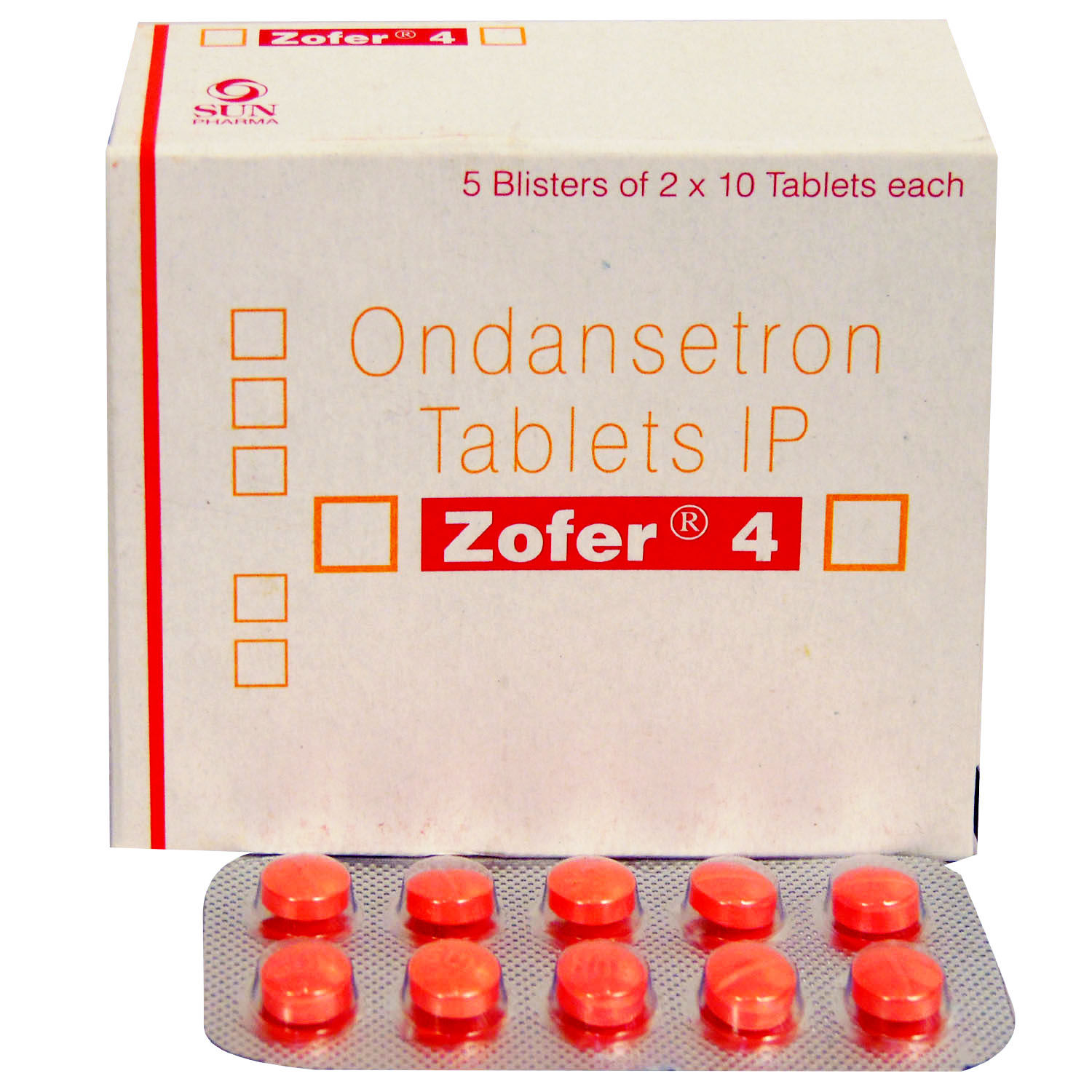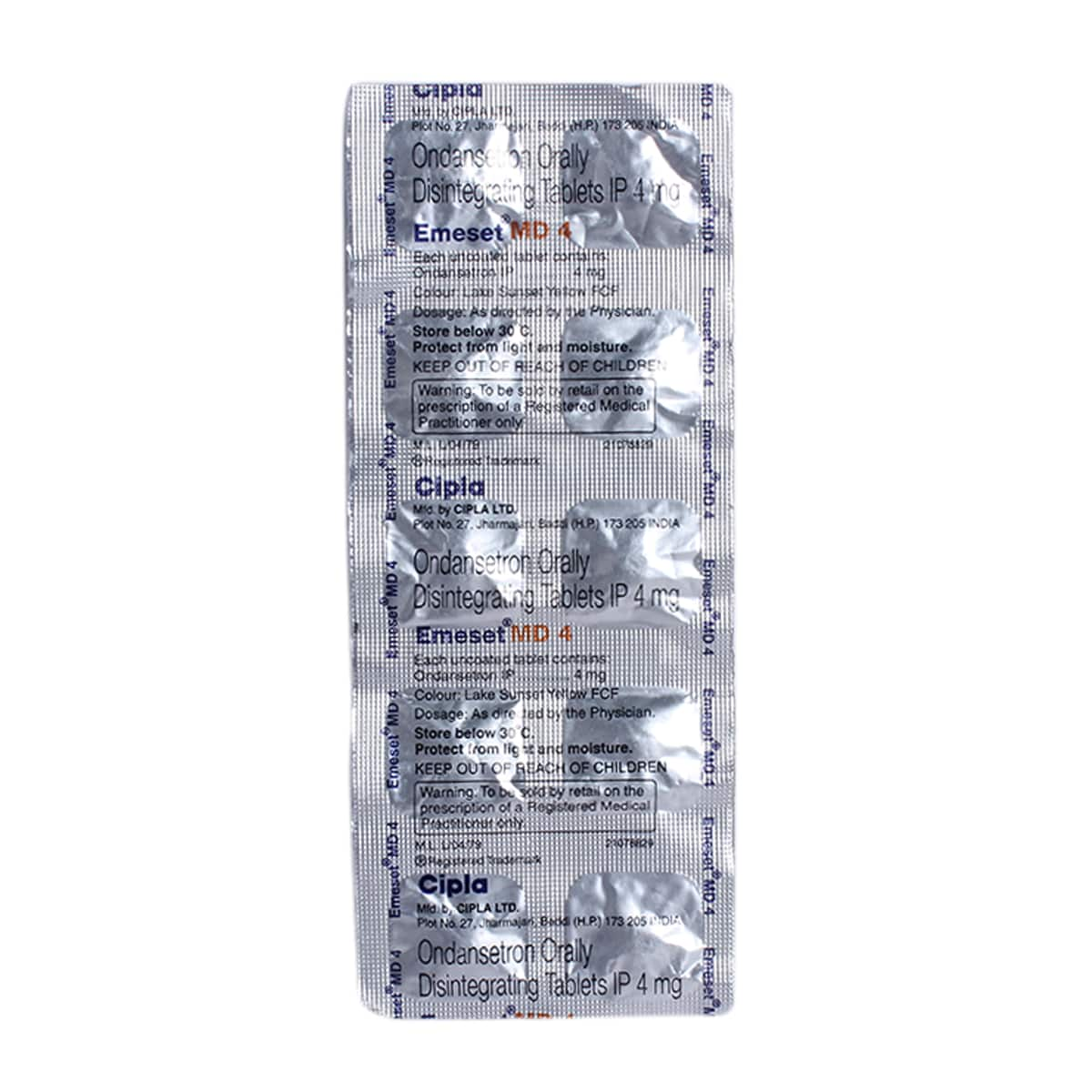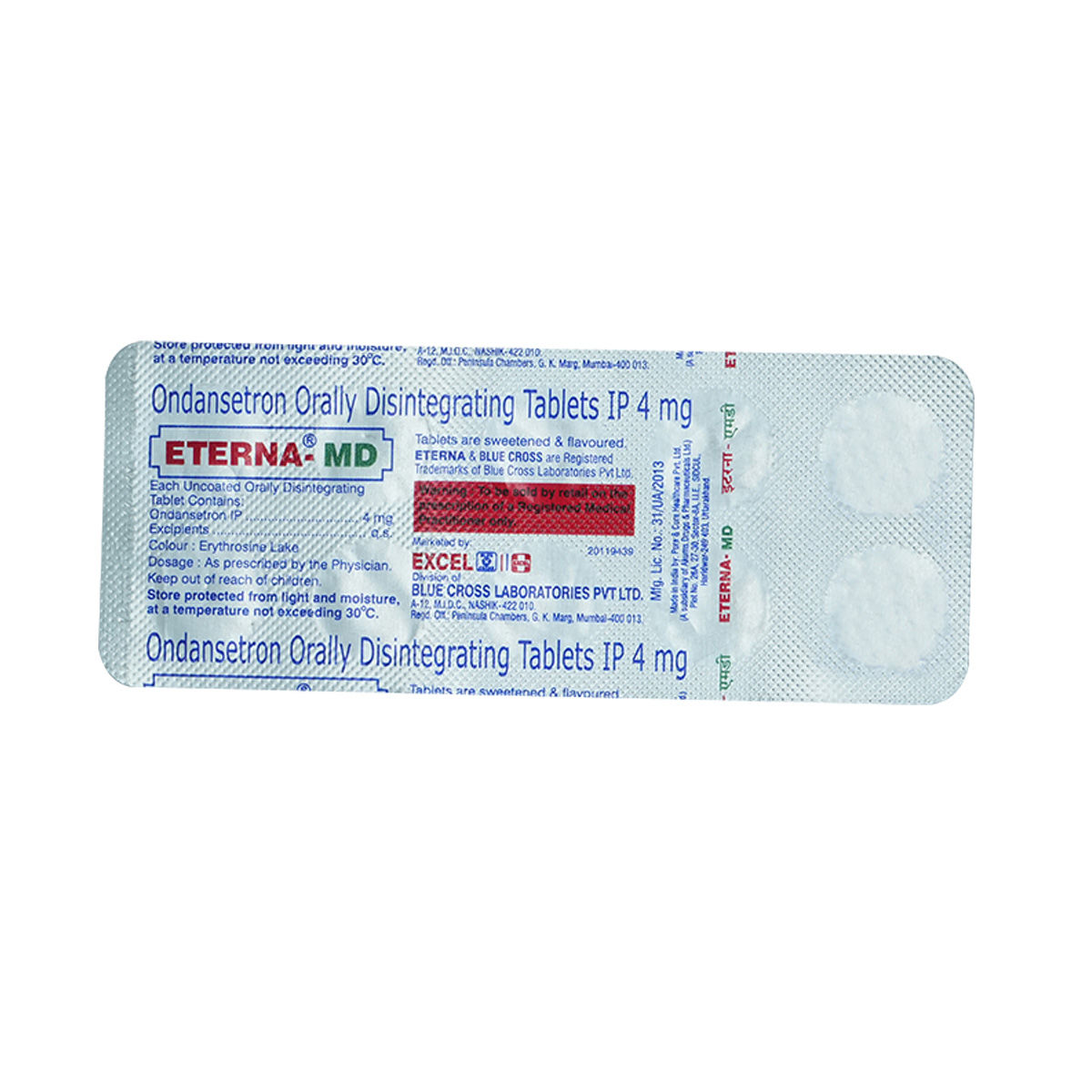Vomitril Tablet

₹49.5*
MRP ₹55
10% off
₹46.75*
MRP ₹55
15% CB
₹8.25 cashback(15%)
Free Delivery
With Circle membership
(Inclusive of all Taxes)
This offer price is valid on orders above ₹800. Apply coupon PHARMA10/PHARMA18 (excluding restricted items)
Vomitril Tablet is used in the prevention of vomiting and nausea that usually occur after cancer chemotherapy, radiation treatment or surgery. It contains Ondanestron, which works by blocking the action of a chemical in the body (serotonin) responsible for causing nausea and vomiting. It may cause side effects such as feeling of warmth, constipation, headache, diarrhoea, headache, drowsiness, feeling of tiredness. Before taking this medicine, you should tell your doctor if you are allergic to any of its components or if you are pregnant/breastfeeding, and about all the medications you are taking and pre-existing medical conditions.
Know Your Delivery Time
Provide Delivery Location
Available Offers
 Prescription drug
Prescription drugWhats That

Secure Payment

India's Most Trusted Pharmacy

Genuine Products
Composition :
Manufacturer/Marketer :
Consume Type :
Return Policy :
Expires on or after :
About Vomitril Tablet
Vomitril Tablet belongs to a group of medications called ' anti-emetics' primarily used in the prevention of vomiting (being sick) and nausea (feeling sick) that usually occur after cancer chemotherapy, radiation treatment or surgery. Nausea is an uneasy feeling in which a person feels an urge to vomit while vomiting is the natural response to the body to forcefully discharge the stomach contents.
Vomitril Tablet contains 'Ondanestron' that works by blocking the action of a chemical in the body (serotonin) responsible for causing nausea and vomiting. As a result, Vomitril Tablet prevents the sensation of nausea and vomiting caused due to conditions like surgery, cancer chemotherapy, pregnancy or motion sickness.
Take Vomitril Tablet as prescribed. Your doctor will advise you on how often you take Vomitril Tablet based on your medical condition. A person taking Vomitril Tablet often experience side effects that include a feeling of warmth, constipation, headache, diarrhoea, headache, drowsiness, feeling of tiredness. Although, not every person faces the side effects of Vomitril Tablet, and even some of the unpleasant effects of Vomitril Tablet do not require medical attention.
The use of Vomitril Tablet is restricted in persons who are allergic to any of the ingredients present in this medicine. Tell your doctor if you are facing liver, kidney, or heart disorders. Vomitril Tablet should be used during pregnancy or breastfeeding after consulting a doctor. Vomitril Tablet contains lactose so tell your doctor if you have an intolerance to some sugars.
Uses of Vomitril Tablet
•Chemotherapy-Induced Nausea: Vomitril Tablet is frequently prescribed to alleviate nausea and vomiting caused by chemotherapy treatments.
•Radiation Therapy Support: Vomitril Tablet can help manage nausea and vomiting experienced by patients undergoing radiation therapy, improving treatment tolerance.
•Postoperative Nausea Relief: Many patients experience nausea after surgical procedures, and Vomitril Tablet is effective in controlling and reducing these symptoms.
Directions for Use
Tablet: It can be taken with or without a meal as advised by the doctor. Swallow the tablet as a whole with a glass of water. Do not break, crush or chew it. Oral disintegrating tablet/Mouth dissolving tablet (tablet MD): Check the label for directions before use. Do not handle the tablet with wet hands. Place the tablet in the mouth and allow it to dissolve. Do not swallow it as a whole.
Medicinal Benefits
Vomitril Tablet belongs to a group of medications called anti-emetics used to prevent nausea and vomiting associated with conditions like cancer chemotherapy, radiotherapy, surgery, pregnancy and motion sickness in adults and children above 4 years of age. When serotonin level increases in the blood, it stimulates the CTZ receptor (chemoreceptor trigger zone) located in the brain responsible for controlling nausea and vomiting. Vomitril Tablet acts by inhibiting the release of this serotonin, thereby preventing nausea and vomiting.
How Vomitril Tablet Works
Storage
- Hydrate your body: Drink enough water to prevent dehydration and headaches.
- Calm Your Mind: Deep breathing and meditation can help you relax and relieve stress.
- Rest and Recharge: Sleep for 7-8 hours to reduce headache triggers.
- Take rest: lie down in a quiet, dark environment.
- Cold or warm compresses can help reduce tension.
- Stay Upright: Maintain good posture to keep symptoms from getting worse.
- To treat headaches naturally, try acupuncture or massage therapy.
- Over-the-counter pain relievers include acetaminophen and ibuprofen.
- Prescription Assistance: Speak with your doctor about more substantial drug alternatives.
- Severe Headaches: Seek emergency medical assistance for sudden, severe headaches.
- Frequent Headaches: If you get reoccurring headaches, consult your doctor.
- Headaches with Symptoms: Seek medical attention if your headaches include fever, disorientation, or weakness.
- Get enough sleep. Maintain a regular sleep cycle.
- Eat a healthy diet and exercise regularly.
- Manage stress with yoga or meditation.
- Limit alcohol and caffeine.
- Avoid driving or operating machinery unless you are alert.
- Inform Your Doctor: Notify your doctor immediately about your diarrhoea symptoms. This allows them to adjust your medication or provide guidance on managing side effects.
- Stay Hydrated: Drink plenty of fluids to replace lost water and electrolytes. Choose water, clear broth, and electrolyte-rich drinks. Avoid carbonated or caffeinated beverages to effectively rehydrate your body.
- Follow a Bland Diet: Eat easy-to-digest foods to help firm up your stool and settle your stomach. Try incorporating bananas, rice, applesauce, toast, plain crackers, and boiled vegetables into your diet.
- Avoid Trigger Foods: Steer clear of foods that can worsen diarrhoea, such as spicy, fatty, or greasy foods, high-fibre foods, and dairy products (especially if you're lactose intolerant).
- Practice Good Hygiene: Maintain good hygiene to prevent the spread of infection. To stay healthy, wash your hands frequently, clean and disinfect surfaces regularly, and avoid exchanging personal belongings with others.
- Take Anti-Diarrheal Medications: If your doctor advises, anti-diarrheal medications such as loperamide might help manage diarrhoea symptoms. Always follow your doctor's directions.
- Keep track of your diarrhoea symptoms. If they don't get better or worse or are accompanied by severe stomach pain, blood, or dehydration signs (like extreme thirst or dark urine), seek medical help.
- Inform your doctor about your constipation symptoms. They may adjust your medication or advise alternative treatments.
- Stay hydrated by drinking sufficient of water (at least 8-10 glasses a day) to help soften stool and promote bowel movements.
- Increase fibre intake by eating foods high in fibre, such as fruits, whole grains, vegetables and legumes, to help bulk up the stool.
- Establish a bowel routine by trying to go to the bathroom at the same time each day to train your bowels.
- Engaging in regular exercise, like walking or yoga, can support in bowel movement stimulation.
- Consult your doctor if constipation persists, and discuss alternative treatments or adjustments to your medication.
- Avoid rubbing or scratching the affected area, as this can cause further irritation and discomfort.
- Consider using a humidifier to add moisture to the air and help reduce the sensation.
- Seek medical attention if the sensation is severe, persistent, or worsens over time.
- Avoid extreme temperatures, such as hot or cold showers, that can exacerbate the sensation.
- Wear light, breathable clothing to help keep the body cool and reduce the sensation.
- Avoid triggers that can cause the sensation, such as spicy foods or hot drinks.
- Use cool compresses or fans to help lower body temperature and reduce the sensation.
- If you experience persistent or severe malaise (a general feeling of discomfort, illness, or unease) after taking medication, seek medical attention immediately.
- Inform your doctor about the medication you're taking and the symptoms you're experiencing.
- Your treatment plan may be modified, which may include adjusting the dosage, substituting with an alternative medication, or discontinuing the medication. Additionally, certain lifestyle changes may be recommended to help manage symptoms.
- To manage malaise symptoms, follow your doctor's advice, such as getting plenty of rest, staying hydrated, and practicing stress-reducing techniques.
- Track your symptoms regularly and report any changes or concerns to your healthcare provider to ensure the malaise is managed effectively.
- Rest well; get enough sleep.
- Eat a balanced diet and drink enough water.
- Manage stress with yoga and meditation.
- Limit alcohol and caffeine.
- Physical activities like walking or jogging might help boost energy and make you feel less tired.
What if I have taken an overdose of Vomitril Tablet
Drug Warnings
Tell your doctor if you are dealing with an uneven heart, liver problems, or any other problem. Tell your doctor if you are taking medicine for epilepsy, cancer medicines, and abnormal heartbeats. Vomitril Tablet may affect a person's ability to drive. Therefore, should avoid driving or operating any machine. People with an irregular heartbeat (arrhythmia), and phenylketonuria (too much of protein phenylalanine in the blood) should not take Vomitril Tablet as it may cause serious conditions. The liver patient should not take more than 8 mg of Vomitril Tablet daily. Vomitril Tablet should be used during pregnancy or breastfeeding after consultation with a doctor. Taking Vomitril Tablet with apomorphine can cause a sharp dip in blood pressure, even leading to death, so avoid its intake together.
Drug-Drug Interactions
Drug-Drug Interactions
Login/Sign Up
Taking Vomitril Tablet with Ziprasidone can increase the risk of abnormal heart rhythm.
How to manage the interaction:
Taking Vomitril Tablet with Ziprasidone is not recommended, but it can be taken together if prescribed by a doctor. However, consult a doctor if you experience sudden dizziness, lightheadedness, fainting, shortness of breath. Do not discontinue any medications without consulting a doctor.
Using Vomitril Tablet together with Sumatriptan might raise serotonin hormone levels in the body, affecting the brain and nerve cells. Increased serotonin hormone can lead to severe side effects.
How to manage the interaction:
Co-administration of Vomitril Tablet along with sumatriptan can lead to an interaction, it should be taken only if recommended by a doctor. However, if you experience symptoms such as confusion, hallucination, seizure, extreme changes in blood pressure, increased heart rate, fever, excessive sweating, shivering or shaking, blurred vision, muscle spasm or stiffness, a shaking sensation, incoordination, stomach cramp, nausea, vomiting, and diarrhea, see a doctor. Do not discontinue any medications without a doctor's advice.
Taking Vomitril Tablet with nilotinib increases the risk of an abnormal heart rhythm.
How to manage the interaction:
Co-administration of Vomitril Tablet along with nilotinib can result in an interaction, it can be taken if a doctor has advised it. However, consult a doctor if you experience abrupt dizziness, lightheadedness, fainting, shortness of breath, or rapid heartbeat. Do not discontinue any medications without a doctor's advice.
Taking Vomitril Tablet and Sotalol can increase the risk or severity of irregular heart rhythms which can be severe.
How to manage the interaction:
Although taking Vomitril Tablet and Sotalol can result in an interaction, it can be taken if a doctor has advised it. However, consult a doctor if you experience abrupt dizziness, lightheadedness, fainting, shortness of breath, or rapid heartbeat consult a doctor. Do not discontinue any medications without a doctor's advice.
Taking fentanyl with Vomitril Tablet may increase the risk of serotonin syndrome(a condition in which a chemical called serotonin increase in your body).
How to manage the interaction:
Although taking fentanyl with Vomitril Tablet can result in an interaction, they can be taken together if prescribed by a doctor. However, if you experience confusion, hallucinations (seeing and hearing things that do not exist), increased heart rate, fever, excessive sweating, muscle pain or stiffness, stomach cramps, vomiting, or diarrhoea, consult a doctor. Do not discontinue any medications without consulting your doctor.
Co-administration of Vomitril Tablet with mifepristone can increase the risk of irregular heart rhythms.
How to manage the interaction:
Taking Vomitril Tablet with mifepristone together can result in an interaction, it can be taken if a doctor has advised it. However, contact a doctor immediately if you experience any symptoms such as dizziness, lightheadedness, fainting, shortness of breath, or irregular heartbeat. Do not discontinue any medications without consulting a doctor.
When Vomitril Tablet, is taken with milnacipran it can cause serotonin syndrome. (a condition in which a chemical called serotonin builds up in body).
How to manage the interaction:
Co-administration of Vomitril Tablet along with milnacipran can lead to an interaction, it can be taken if recommended by a doctor. However, if you experience symptoms such as confusion, hallucination, seizure, extreme changes in blood pressure, increased heart rate, fever, excessive sweating, shivering or shaking, blurred vision, muscle spasm or stiffness, a shaking sensation, incoordination, stomach cramp, nausea, vomiting, and diarrhea, see a doctor. Do not discontinue any medications without a doctor's advice.
Coadministration of Vomitril Tablet with Trazodone may increase the risk of serotonin syndrome (a condition in which a chemical called serotonin increase in body).
How to manage the interaction:
Although taking Vomitril Tablet along with trazodone can result in an interaction but can be taken together if prescribed by a doctor. However, consult a doctor if you experience confusion, hallucination (seeing and hearing things that do not exist), fits, blood pressure alteration, increased heart rate, fever, excessive sweating, shivering or shaking, blurred vision, pain in the muscles or stiffness, incoordination, stomach cramps, nausea, vomiting, and diarrhea. Do not discontinue any medications without consulting a doctor.
Co-administration of Vomitril Tablet with haloperidol can increase the risk or severity of irregular heart rhythms. The risk increases in patients with a history of heart illness or electrolyte imbalance.
How to manage the interaction:
Co-administration of Vomitril Tablet along with haloperidol can result in an interaction, it can be taken if a doctor has advised it. Consult a doctor if you experience abrupt dizziness, lightheadedness, fainting, shortness of breath, or rapid heartbeat. Do not discontinue any medications without a doctor's advice.
When Vomitril Tablet, is taken with citalopram, the risk of serotonin syndrome increases. (a condition in which a chemical called serotonin builds up in body).
How to manage the interaction:
Co-administration of Vomitril Tablet along with citalopram can lead to an interaction, it can be taken if recommended by a doctor. However, if you experience abrupt dizziness, lightheadedness, fainting, shortness of breath, or heart palpitations, confusion, hallucination, seizure, extreme changes in blood pressure, increased heart rate, fever, excessive sweating, shivering or shaking, blurred vision, muscle spasm or stiffness, tremor, incoordination, stomach pain, nausea, vomiting, and diarrhea while taking these medications, consult the doctor. Do not discontinue any medications without a doctor's advice.
Drug-Food Interactions
Drug-Food Interactions
Login/Sign Up
Diet & Lifestyle Advise
A person should take a healthy diet that includes lots of fruits and vegetables, lean meats, skinless poultry, nuts, fish, whole grains, plant-based oils, and low-fat dairy products will help to keep a person in good health and avoid chances of nausea and vomiting.
One should avoid taking greasy or oily foods as this food triggers nausea and vomit.
Eat cool foods instead of hot and spicy foods.
Include clear broths, non-fat yoghurt, fruit juice, sherbet, and sports drinks for fluid make up which has got lost due to vomiting.
Habit Forming
Therapeutic Class
Vomitril Tablet Substitute

Nuavomin 4 mg Tablet
by Others
₹5.75per tabletOndem-MD 4 Tablet 10's
by Others
₹5.18per tabletEmeset-4 Tablet 10's
by Others
₹5.18per tabletZofer MD 4 Tablet 10's
by Others
₹5.13per tabletOndem 4 Tablet 10's
by Others
₹5.18per tablet
Product Substitutes
Alcohol
Unsafe
One should avoid consuming alcohol while taking Vomitril Tablet as this medicine can interact with alcohol and may worsen the side effects.
Pregnancy
Safe if prescribed
Vomitril Tablet could be used during pregnancy after consulting a doctor.
Breast Feeding
Safe if prescribed
Vomitril Tablet could be used during breastfeeding after consulting a doctor.
Driving
Caution
Vomitril Tablet may cause lightheadedness in the body, so a person taking Vomitril Tablet should avoid driving or operating any heavy machinery or tasks that require mental alertness.
Liver
Safe if prescribed
In persons dealing with liver problems, the use of Vomitril Tablet is allowed if prescribed by the doctor. However, in patients with severe liver problems should take a low dose of Vomitril Tablet as much as possible. Do not take more than 8 mg of Vomitril Tablet per day in case of liver disease.
Kidney
Safe if prescribed
The use of Vomitril Tablet is safe in patients dealing with kidney disorders. No dose adjustment is required.
Children
Safe if prescribed
Vomitril Tablet should not be given to the children below 4 years of age. The use of Vomitril Tablet is safe in children above 4 years of age if prescribed by the doctor.
FAQs
Vomitril Tablet is indicated in the treatment of nausea and vomiting.
Vomitril Tablet works by blocking the action of a chemical in the body (serotonin) responsible for causing nausea and vomiting.
Vomitril Tablet may cause changes in the vision, so one should avoid driving or operating any machine that required mental alertness.
People with an irregular heartbeat (arrhythmia), and phenylketonuria (too much of protein phenylalanine in the blood) should not take Vomitril Tablet as it may cause serious conditions. The liver patient should not take more than 8 mg of Vomitril Tablet daily. Taking Vomitril Tablet with apomorphine can cause a sharp dip in blood pressure, even leading to death, so avoid its intake together.
Vomitril Tablet is an anti-sickness medicine that takes about 1-2 hours to show its action.
Vomitril Tablet contains Ondansetron, an antiemetic drug.
Vomitril Tablet is ineffective in preventing nausea associated with motion sickness.
Before taking the Vomitril Tablet, let your doctor know about all your medical conditions, sensitivities, and medications you are using. Also, inform your doctor if you are pregnant, planning to become pregnant, or breastfeeding.
Yes, Vomitril Tablet might make you feel sleepy or tired.
Vomitril Tablet usually works quickly, usually within 30 minutes, but it can take up to two hours for the full effect.
Common side effects of Vomitril Tablet may include warmth, constipation, headache, diarrhoea, drowsiness, and tiredness. However, not every person faces these side effects, and even some of the unpleasant effects of Vomitril Tablet do not require medical attention.
Vomitril Tablet was not found to be beneficial in the treatment of seasickness.
Vomitril Tablet works by blocking the action of a chemical in the body (serotonin) that is responsible for causing nausea and vomiting. As a result, Vomitril Tablet prevents the sensation of nausea and vomiting caused by conditions like surgery, cancer chemotherapy, pregnancy or motion sickness.
Yes, you can take Vomitril Tablet half an hour to 1 hour before meals.
If you forget to take a dose of Vomitril Tablet, take it as soon as you remember. But, if it is time for your next dose, skip the missed dose and take your regular dose. Do not take a double dose to make up for a forgotten dose.
Vomitril Tablet may cause changes in the vision, so one should avoid driving or operating any machine that requires mental alertness.
Suppose you took more than the recommended dose, as it might cause an overdose. Signs and symptoms of an overdose of Vomitril Tablet may include constipation, dizziness or lightheadedness, fainting, irregular heartbeat, and sudden loss of vision for a short time. Seek immediate medical attention if you observe any symptoms or think you have taken too much. Do this even if there are no signs of discomfort or poisoning.
No, Vomitril Tablet is not a steroid. Vomitril Tablet belongs to a class of drugs known as anti-emetics.
While specific dosing instructions will vary depending on your individual needs and medical history. Always follow your doctor's prescribed dosage and timing for taking these medications.
Take Vomitril Tablet exactly as prescribed by the doctor. Take it at the same time daily as it will help you to remember taking the medication.
Yes, Vomitril Tablet has also been prescribed during pregnancy to help with symptoms of nausea and vomiting in pregnancy.
Country of origin
Manufacturer/Marketer address
Disclaimer
Author Details
We provide you with authentic, trustworthy and relevant information







